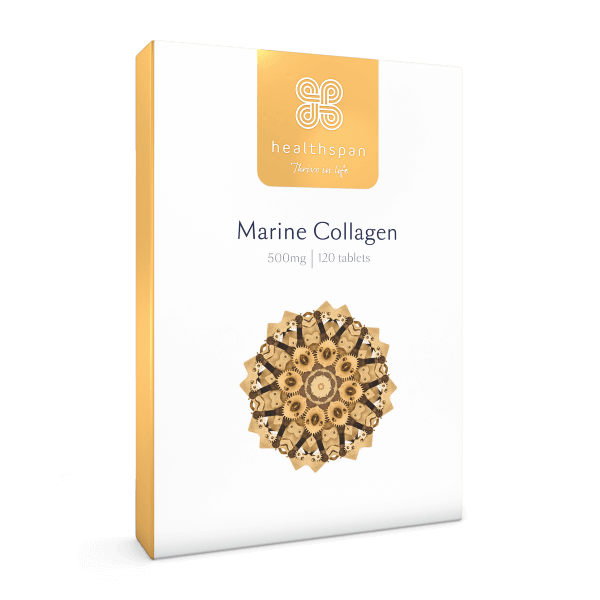We all know that exercise is good for our heart, waistline and overall wellbeing, but here's another reason to get active. Regular exercise can help your skin to look younger for longer. It helps improve your circulation, pumping more blood and oxygen to your skin cells to keep them healthy and resilient.
What affects your skin's elasticity?
Your body produces one per cent less collagen, a protein responsible for skin firmness, every year after the age of 20, so your skin becomes thinner as you age. Sweat and oil gland function also drops as you get older so fewer elastin fibres are produced and the skin loses elasticity.1
The female sex hormone oestrogen also plays an important role in keeping your skin firm and elastic. After a woman's menopause, levels of oestrogen drop rapidly and this is when many women notice ageing signs such as wrinkles, dryness and less elasticity. Loss of oestrogen causes skin thinning – it reduces by 1.13 per cent each menopausal year.2 It also causes a fall in the supportive tissue collagen, by 30 per cent2 in the first five years after the menopause.
Oestrogen loss also makes skin dehydrated. The combination of these changes results in less elastic skin as well as lines and wrinkles. Studies have shown that your skin's elasticity drops by 1.5 per cent a year2 after the menopause.
Other factors which affect your skin's elasticity include sun damage, smoking, poor diet and stress.
Importance of nourishing your skin
Skin is our largest organ, accounting for 16 per cent of our body's weight,3 and needs to be properly nourished and cared for so it can function well and look its best. The blood supply for your skin is in the dermis, the deepest layer of skin, and this nourishes your skin's cells and tissues. This layer is where the support structure of your skin is found – the collagen and elastin fibres which make it strong and elastic.
To work effectively, your skin needs a constant supply of blood, oxygen and water.

Marine Collagen
Support for your skin, bones and joints
- High levels of hydrolysed marine collagen
- Low molecular weight to aid absorption
- Added vitamin C to support collagen formation
How exercise can improve your skin's elasticity
Studies have shown exercising regularly can improve the health of your skin, making it younger-looking and more resilient, whatever your age.
One study4 found moderate to vigorous exercise resulted in visibly younger-looking skin. It seems exercise may be able to reverse some of the skin cell changes that lead to ageing signs, including loss of elasticity. It does this by improving the metabolism of your skin cells so they function better, in the same way that exercise boosts your body's metabolic rate to burn calories.4
Any exercise that increases your heart rate and stimulates circulation of blood, including walking, cycling, running and swimming, is good for your skin. The study4 which looked at the anti-ageing effect of exercise found that an endurance exercise (cycling in this case) produced anti-ageing results on the skin.
Boost your skin's health with nutrition
Healthy skin needs a good supply of foods rich in antioxidants to protect and repair it. These include vitamins A, C and E, found in fruit and vegetables, eggs, cheese and vegetable and seed oils.5Vitamin B2 and B3 are also vital for healthy skin, found in milk, eggs, breakfast cereals, meat and wholegrains.
Vitamins B6 and B12, found in meat, fish, eggs and cheese, are important for making red blood cells which carry oxygen to our skin cells.6
Omega 3 fatty acids, found in oily fish, could help to strengthen your skin's barrier layer.7 This helps prevent water loss and stops the skin from dehydrating, making it supple.
Skin enemies
Keep to the recommended alcohol levels as drinking too much causes dehydration,5 which means your skin is likely to be less elastic and more prone to lines and wrinkles.
Smoking ages your skin, causing premature wrinkles. Tobacco smoke dehydrates the skin and restricts the blood flow to skin cells by constricting your blood vessels, starving your skin of oxygen and nutrients.8
Supplements to boost your skin's elasticity
- Collagen supplements may help to replenish your skin's dwindling collagen supply as you get older.
- Vitamin E is essential for healthy skin cells and a supplement could give your skin a boost.
- Evening primrose oil is sometimes taken for dry and itchy skin conditions.






